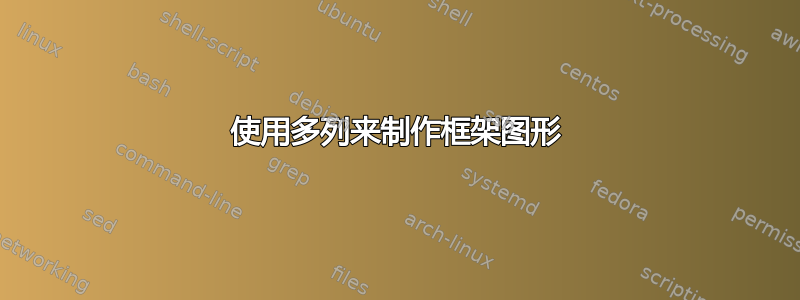
我的 中有一些图形article。我希望这些图形被框起来。我设法用figure和floatrow包做到了这一点。但我在改变框架尺寸时遇到了问题,因此我必须缩小图形尺寸才能使其适合框架。然后我偶然发现了Graphix 下的颜色框宽度不一样,我从中改编了以下内容:
\documentclass[b5paper,11pt,fleqn,leqno,parskip=full]{article}
\usepackage{graphicx}
\usepackage[english,dutch]{babel}
\usepackage{multicol}
\usepackage{xcolor}
\graphicspath{ {../Images} }
\begin{document}
\begin{multicols}{3}
\noindent\parbox[t]{1.2\linewidth}{%
\fcolorbox{gray}{gray}{\includegraphics[width=2.5\linewidth]{../Images/precip_corr.jpg}
\parbox{\dimexpr\linewidth-2\fboxsep-2\fboxrule\relax}{\color{white}%
\raggedright{Areas of Significant El Nino-Related Precip Anomalies.\\ \small source: Ropelewski and Halpert.}
}%
}%
}
\end{multicols}
\end{document}
这个例子对我来说是可行的,除了我想要图下方的标题。此外,我不理解各种参数,通过反复试验进行更改没有用,除了:
1.2 英寸 \noindent\parbox[t]{1.2和\includegraphics[width=2.5.
我希望有一个人可以帮助我:
a) 如果可能的话,请附上下面的标题 b) 解释一下
{3}在\begin{multicols}{3}
[t]在\noindent\parbox[t]
-2在\parbox{\dimexpr\linewidth-2\fboxsep-2
提前致谢。
答案1
我认为您可以安全地切换到使用mdframed背景,可以轻松更改大小,因此如果这就是您拥有该multicols包的原因,那么您可以将其删除。
下面是一个带有 的示例\newcommand。背景颜色是可选的(默认白色)。
关于您的问题:
- multicols 中的数字
3表示科尔文本分成 umns。 [t]中的选项parbox是文本对齐,即:[t]— 文本位于框的顶部。[c]— 文本垂直居中。[b]— 文本位于底部。[s]— 垂直拉伸。请注意,文本必须包含可垂直拉伸的空间才能实现此功能。
\linewidth-2基本上是2从的值中删除\linewidth。
笔记:这张截图的页边距已调整,以便页面显示得更近。单击图像可更好地查看。
输出
代码
\documentclass[b5paper,11pt,fleqn,leqno]{article} % parskip=full was unused
\usepackage{graphicx}
\usepackage[english,dutch]{babel}
\usepackage{cleveref} % clever referencing that adds "fig.", etc, automatically
\usepackage{xcolor}
\usepackage{mdframed} % required for drawing the background + line color
\usepackage{float} % needed to use [H]
\newcommand\bfig[4][white]{
\begin{figure}[H]
\begin{mdframed}[linecolor=#1,backgroundcolor=#1]
\centering
\includegraphics[width=\textwidth,height=\dimexpr\textheight-4\baselineskip-\abovecaptionskip-\belowcaptionskip\relax,keepaspectratio]{#2}
\caption[caption]{#3}\label{#4}
\vspace{10pt}
\end{mdframed}
\end{figure}
}
\begin{document}
\bfig{example-image-a}{Areas of Significant El Nino-Related Precip Anomalies.\\\hspace{\textwidth}\small Source: Ropelewski and Halpert.}{imagea}
As showed in \cref{imagea}, A is the best letter.
\bfig[gray]{example-image-b}{Areas of Significant El Nino-Related Precip Anomalies.\\\hspace{\textwidth}\tiny Source: Ropelewski and Halpert.}{imageb}
While \cref{imageb}, well, not really...
\end{document}



